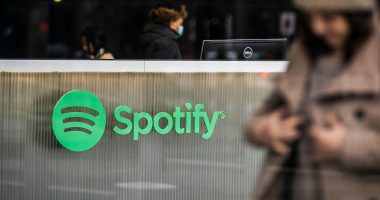
It took some time — weeks in reality, eons in a pandemic — for New York state to compile its list of the comorbidities and underlying conditions that made residents eligible for Covid-19 vaccinations.
In mid-January, Gov. Andrew Cuomo announced that the immunocompromised would be included in the next vaccination phase but that it would be up to the Centers for Disease Control and Prevention to determine what, exactly, counted as immunocompromised. Inconsistencies among state qualifications did nothing to quell the collective anxiety of an already vulnerable, restless population. Finally, on Feb. 5, the list was published; eligible people could begin vaccinations on the 15th, nearly 11 months after the former U.S. president reassured the country that the pandemic would be cleared up by Easter.
Someone young and healthy-looking stood in front of me. I found myself resisting an urge, several times, to tap him on the shoulder.
And so, on Valentine’s Day, I, along with seemingly everyone else on Twitter, tried to log on and reserve an appointment.
No luck.
I tried again the next day, and the next. I tried at 11 p.m. and 7 a.m. and during many bleary-eyed moments in between. I refreshed my browser, gave up hope entirely and began the cycle anew. A week later, my perseverance paid off, and I got an appointment for my first shot — for the end of March, 224 miles from where I lived.
Frustrated by my lack of success, as social feeds around me were populated with images of masked victors boasting about their scheduled vaccinations, I fired off an irritable tweet asking whether I knew other Type 1 diabetics who were able to get appointments.
I did.
A few helpful DMs later, I discovered TurboVax — a tool that culls available appointments from New York state and city vaccination sites — and after several days of monitoring, I booked an appointment a mere 5.1 miles from my Brooklyn residence. Admittedly, my own inevitable “1 down, 1 to go!” post on Instagram — the kind I had hated just days before — followed soon after.
It was in line for my first shot, several weeks later, that I bumped into another complication of the rollout: In the midst of this real-time, evolving, occasionally ugly reality, an understated phenomenon around personal health and public disclosure had emerged. Someone young and healthy-looking stood in front of me. I found myself resisting an urge, several times, to tap him on the shoulder and ask, “What brings you here?”
Curiosity felt natural. And problematic.
In an era defined by misinformation and unrelenting uncertainty, the question of who can get vaccinated and by when has sparked a not-unfounded paranoia — that classist disparities are at play, that someone undeserving has jumped the line, that loopholes exist and will exacerbate socioeconomic divides between the haves and the have-nots.
All of which creates a heightened, even panicked, environment around what should be an otherwise celebratory, uncontroversial event: becoming inoculated against a deadly virus. Many people don’t look like they should qualify. (When was the last time you saw someone on the street and thought, “Yep — high blood pressure”?) For others, it’s more obvious: if, say, they’re pregnant or above a certain age.
But that’s exactly the point — we shouldn’t have to know. It shouldn’t have to be obvious. The problem with asking people to talk about why they were eligible is mirrored by the larger, thornier issue of how we talk about most of the chronic conditions that make people eligible.
I asked a friend of mine, Natasha, who qualified because of fibromyalgia, about her experience sharing her vaccination online. Her friend group seemed mostly surprised and excited for her. “But surprise expressed by those who are healthy, however seemingly innocuous their comments might be, touches on an ongoing frustration I have,” she added, “where I feel like I constantly need to justify or explain my condition.”
I considered my own motivations for sharing my vaccine update. Mostly, I had just been excited. The shot came with a sense of pride and relief. I did it. But not everyone writes about their health for a living. Unlike me, your vaccinated co-worker or neighbor may have been comfortable sharing that they received their first dose but not the details of what made them eligible to do so.
Many Americans are beginning to feel a palpable sense of relief as eligibility accelerates and the promise of herd immunity looms large. But that doesn’t give us the right to interrogate our peers; we are not the vaccine police. Asking people how they qualified may unwittingly be asking them to defend something they involuntarily live with every day to prove the worthiness of something painful and largely unseen.
Let them tell you first.
Source: | This article originally belongs to Nbcnews.com










